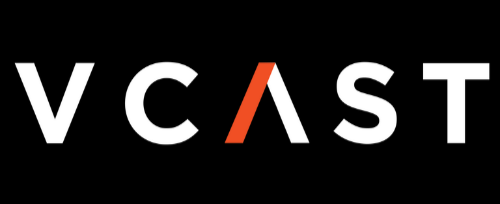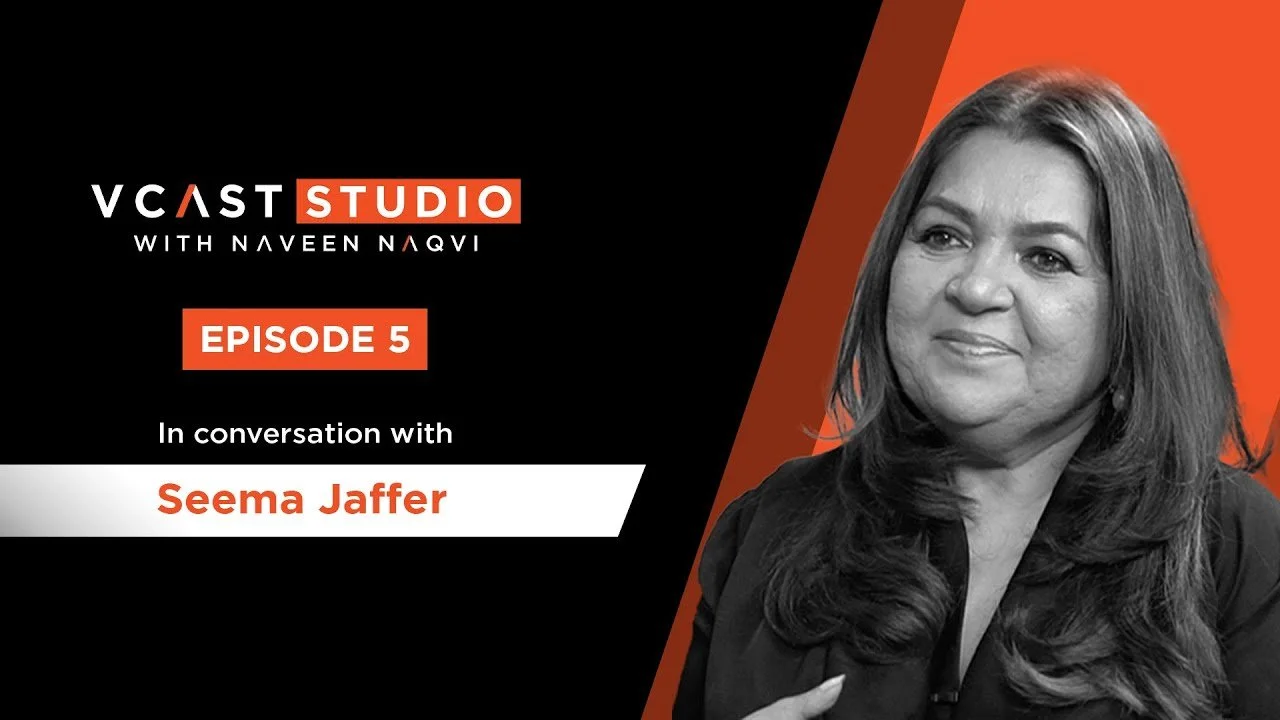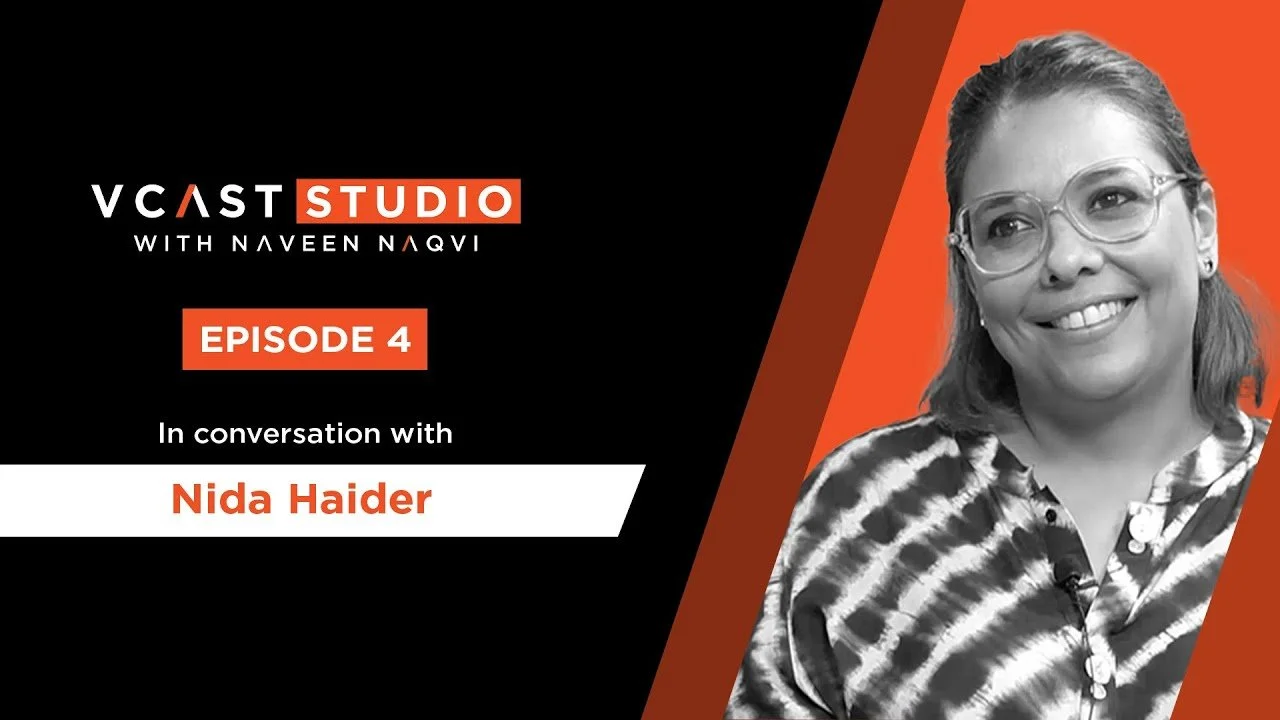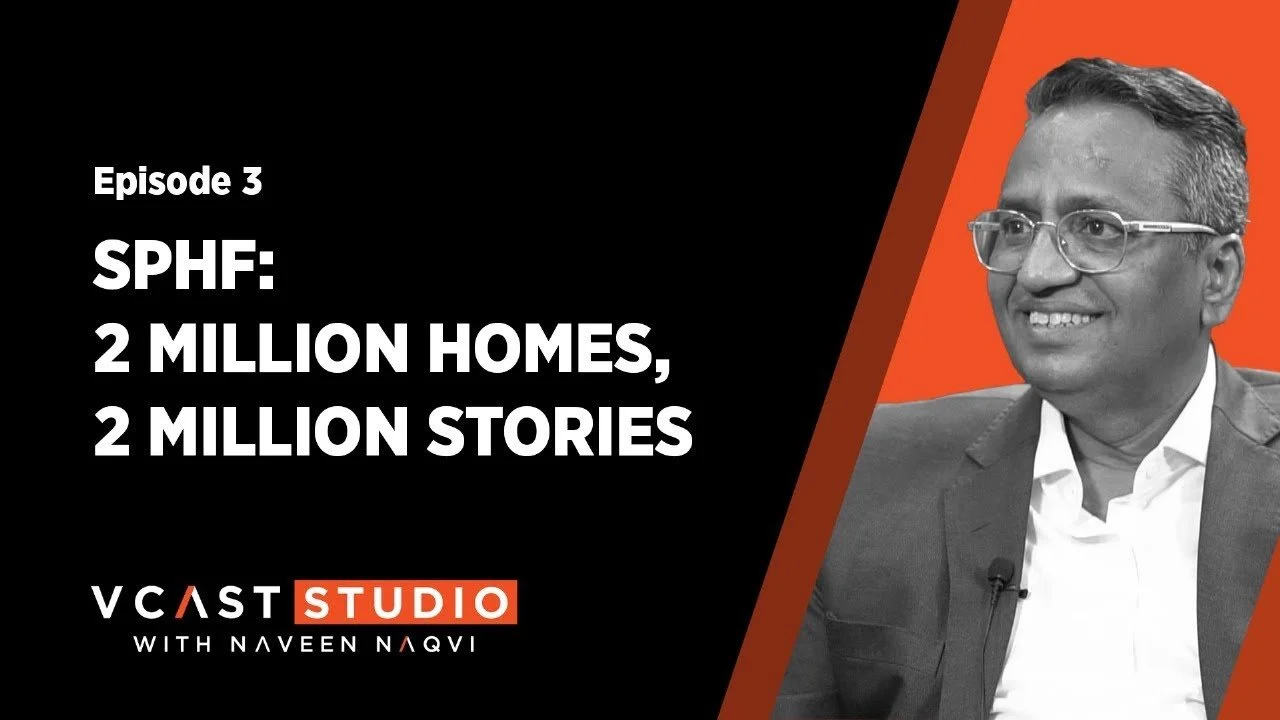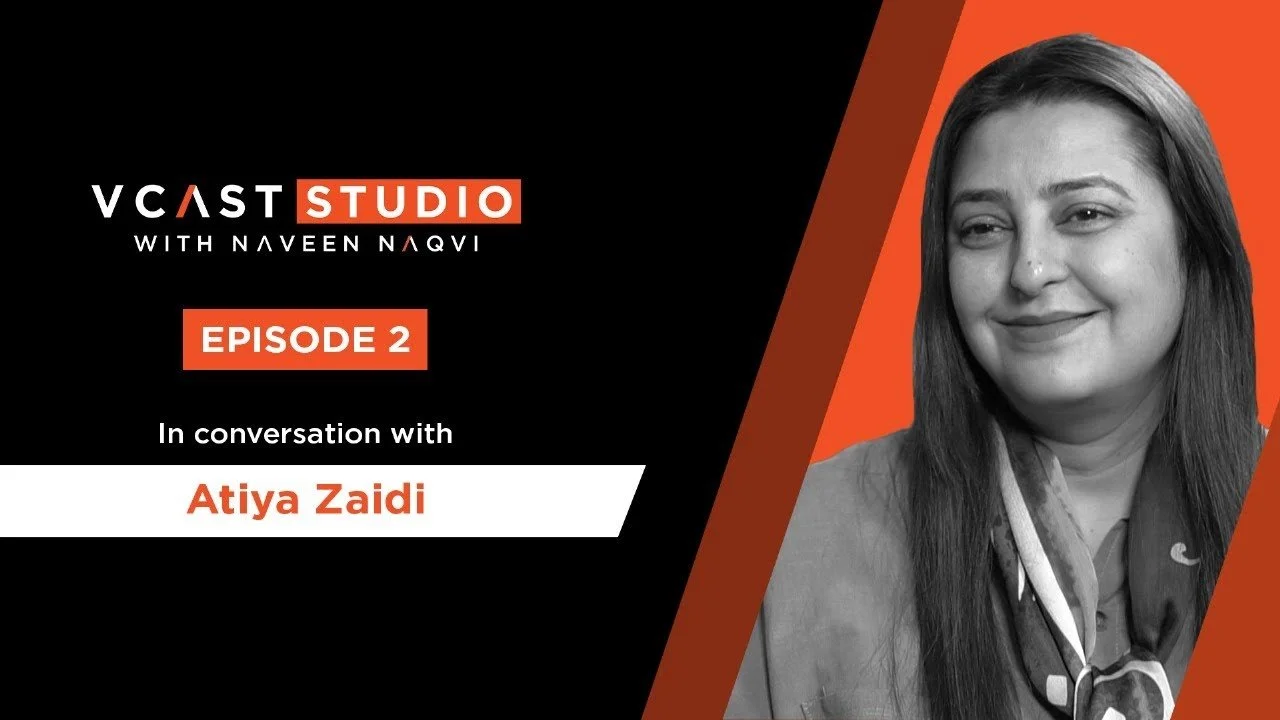VCast Studio - Episode 4 | Nida Haider
“When you're beamed into 98 percent of the country's households, you do have a power. And I think that you have to use that power with a lot of responsibility.”
In this interview, Nida Haider, Managing Partner at IAL Saatchi & Saatchi shares insights on leadership in advertising and offers advice to the next generation.
Pakistan’s advertising landscape is undergoing a revolution—fueled by digital acceleration and exposure to global trends. With over 100 million people now connected to the internet, storytelling has evolved with an emphasis on short-form content. Haider observes that while clients still invest in traditional media, they are becoming increasingly strategic, reallocating budgets to digital platforms—a shift driven largely by the need to cut costs.
Simultaneously, the industry is adapting to AI's emergence. Haider advocates for using AI as a strategic tool rather than fearing it—leveraging its predictive analytics while recognizing its limitations—particularly on the creative end. She stresses that AI cannot replicate human intuition gained from lived experience. Essential storytelling qualities—empathy, nuance, and contextual understanding—remain uniquely human strengths that technology cannot replace.
A key part of her mission as a creative leader is nurturing upcoming talent. She asserts that there is no singular path into advertising; it is an industry open to storytellers from diverse backgrounds. Her leadership philosophy mirrors this openness.
“No two days in advertising are the same. No two people require the same type of leadership. And I think it’s important for a leader to understand that and adapt and be flexible.”
Leading an agency with an average age of around 28, she actively values young people’s perspectives. To retain them, the agency passes the reins through mentorship and by creating opportunities for them to lead projects as “entrepreneurs” of their brands—directly engaging the entrepreneurial spirit of the young generation. Noting a lack of arts and culture spaces in Pakistan, the agency also invites external thinkers, innovators, filmmakers, and writers to expand the team's worldview.
When asked about the value of EQ in leadership, Nida Haider cites a Harvard study confirming that emotion—not logic—drives most human decisions. For her, the core of emotional intelligence lies in two non-negotiable qualities for any leader: empathy and perspective.
Beyond team leadership, emotion also informs the very work of advertisers. Haider discusses the power of advertising in steering national sentiment. She cites her team's efforts to portray equal relationships in ads for brands like Tapal, National Foods, and Ariel—showing that domestic labor is not a woman's burden alone. They have even received feedback from consumers who have rethought their own relationship dynamics due to these ads, a powerful reminder of advertising's role in shifting culture.
She explains how the industry is realizing this power and the value of targeting women, who often decide household purchases. This realization has also reflected in a growing desire to hire more women in a historically male-dominated field.
However, the industry faces significant challenges. Having worked at top US agencies like Goodby Silverstein & Partners for over a decade, Haider noted a sense of “brotherhood” between firms. In contrast, she describes the Pakistani ad agency scene as a “dog-eat-dog world:” hyper-competitive with client poaching and internal rivalries that sometimes work to the industry’s own detriment. She emphasizes that a stronger industry can be built by fostering human connection beyond boardrooms and pitch meetings, a positive change she already sees in young leaders who value collaboration.
She is equally candid about the internal challenges. Haider speaks openly about the mental health toll of long hours and constant availability in this higher-pressure industry. At IAL Saatchi & Saatchi, a flexible, hybrid work model rooted in trust and accountability helps retain talent, especially women balancing work and family. But she stresses the need to go further:
“We need to work on what’s creating mental issues in people. Stop glamorizing overworking. Speak your mind. You’re going to crash if you don’t speak your mind.”
Her insights extend beyond agency walls. When asked how she would rebrand Pakistan, she looks to the past, revisiting old PIA ads rooted in the nation’s hospitality and rich history. She points to generosity, or Mezbani, as the country’s defining brand essence—an ethos so instilled in the culture that it transcends political or economic volatility. This, she believes, is the authentic core that can power a national rebranding effort.
As the conversation draws to a close, Haider addresses Pakistan’s next generation with a powerful message: she urges them to reject silence and complacency, to speak their minds, and to take ownership of Pakistan—in digital media and beyond.
Highlighting the unique power of advertising to reach millions of homes, she encourages young people to join the industry with purpose.
“Let’s start shifting mindsets, let’s talk about purpose, let’s bring Brand Pakistan to the world. ”
If you were to rebrand Pakistan based on its core values, what stories would you lead with and why? Share your thoughts below.
This article was developed with the assistance of AI tools.
